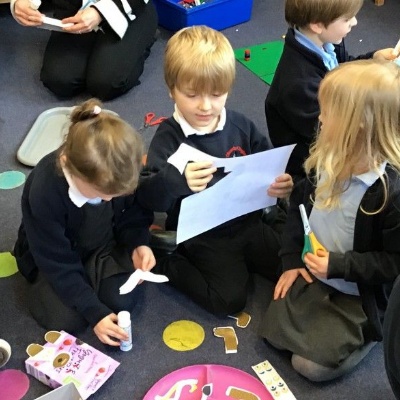What a wonder-ful world

After the excitement of celebrating books and the wonder of reading last week, this week we have moved on to celebrating science and the wonder of how the world works! If you haven’t heard- this week is British Science Week and we have all been theorising, experimenting and exploring the world around us. This year, the theme for British Science Week is change and adapt and the classes have all been investigating this theme in a slightly different way.
Ash class have been noticing how different animals live in different habitats and how they look different according to where they live. Ash Class made some incredible creatures out of junk modelling materials and discussed how the features they had matched to where they lived.
Oak Class have been exploring the wonderful world of worms! They have been learning how important worms are to all of us; our super scientists have created their own wormeries so that they can observe the fantastic way that worms turn rotten leaves and food into the soil that helps plants survive and grow. They had great fun pretended to be rain drops pattering on the soil to tempt the worms out of hiding and only one worm was unfortunately injured in the pursuit of knowledge- the others are enjoying two weeks of fed luxury before being released back into the wild.
Beech Class were investigating glaciers- well, glacial ice cubes. They were investigating how different water affected the melting time of the glaciers. Out of the range that they tried, they found that the ice melted more quickly in the warm water. Beech Class also had great fun experimenting with fizz balloons- watching a balloons inflate, as if by magic, when placed on top of a bottle of sodium bicarbonate and vinegar (seriously, try this one at home!).
Chestnut were competing in an ice challenge. They investigated which material of glove would allow them to keep their hands in a bucket of ice for the longest time. They found that the best – though the most disgusting sounding- was a glove filled with lard. The lard insulated their hands, much like a layer of blubber insulates many animals that live in arctic conditions. It was fascinating to see ‘hands on’ how this adaptation really helps animals to survive and thrive in the harshest conditions.
And Sycamore Class had a whole carousel of different activities, the most thought provoking being 'Should we flush it away?'. This experiment explored how materials change and breakdown in water. They found that all materials- even toilet paper- took an awful lot of effort (shaking) in water to break down; some materials, like wet wipes never broke down at all. It was interesting to think about what happens to materials that are flushed down the toilet and how just because they're gone from our sight doesn't mean that there are truly gone.
We’ve had great fun this week and have learnt a lot about how wonder- ful our world truly is.
